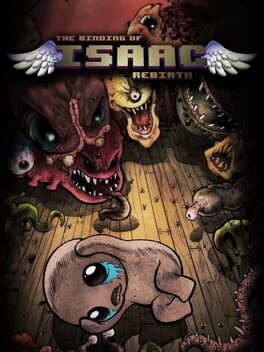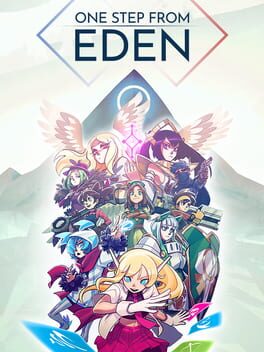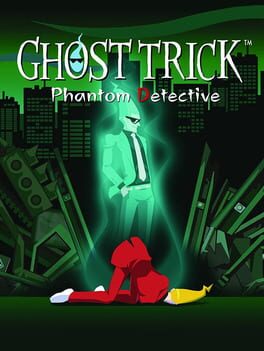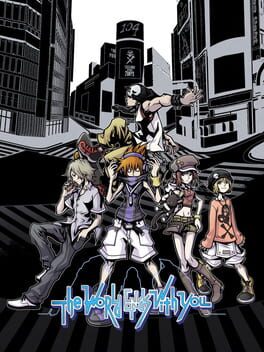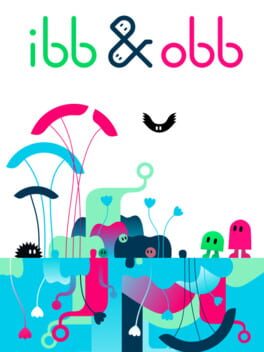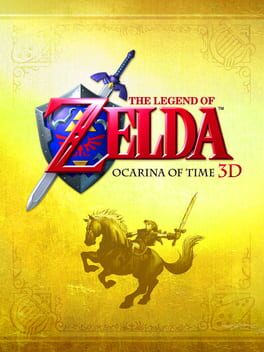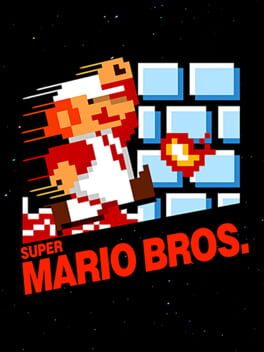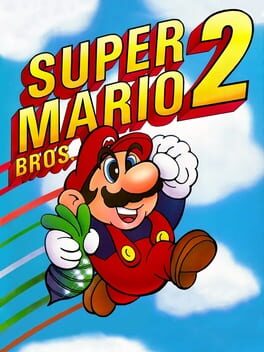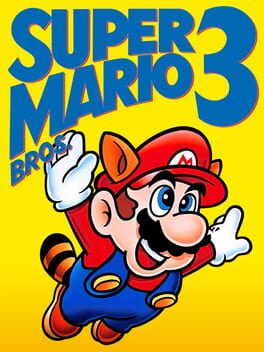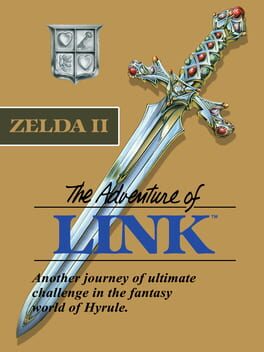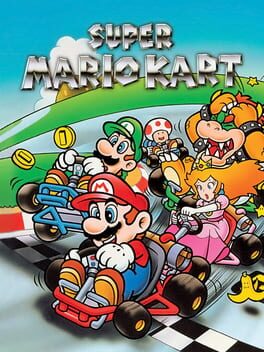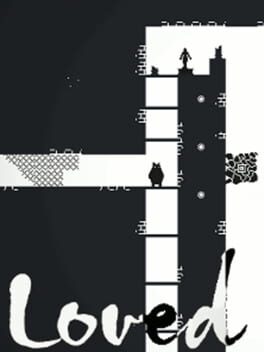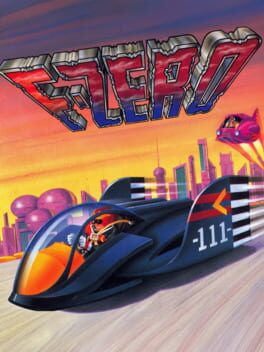AutumnLily
Strongly dislike how the game just expects you to memorise the effects of its myriad items when these effects can vary wildly from incredibly powerful to run-endingly detrimental, and it's hard to parse what some effects even do in the first place. Also dislike how some builds feel near-unbeatable, whilst others are useless, and that it feels like such rng as to which you'll end up with.
I get that this was a key player in the roguelite genre becoming popular, but it has been significantly outperformed by later entries.
I get that this was a key player in the roguelite genre becoming popular, but it has been significantly outperformed by later entries.
2020
The learning curve for this game is incredibly steep and the game does very little to help you in that regard, and there's just generally a bunch of stuff that needs to be explained more clearly in-game. I enjoyed this a bit more than this score indicates in part due to having someone explain mechanics of the game to me in my early runs, but imagine I would have been pretty frustrated at points were I tackling this game on my own.
The gameplay itself is intense, challenging and punishing, but once you get into the flow of it it can be quite rewarding and exciting, the boss fights serving as highlights. That said I don't love some aspects of the deckbuilding (the motivation to take extremely few of the rewards you're presented with so you can maintain a stream-lined deck is fairly feel-bad, the requirement to build towards some scripted hyper-efficient archetype is frustrating for various reasons).
My motivation to play the game plummeted once I found the various endings, and the endings themselves tended to feel very anticlimactic due to the threadbare story.
The gameplay itself is intense, challenging and punishing, but once you get into the flow of it it can be quite rewarding and exciting, the boss fights serving as highlights. That said I don't love some aspects of the deckbuilding (the motivation to take extremely few of the rewards you're presented with so you can maintain a stream-lined deck is fairly feel-bad, the requirement to build towards some scripted hyper-efficient archetype is frustrating for various reasons).
My motivation to play the game plummeted once I found the various endings, and the endings themselves tended to feel very anticlimactic due to the threadbare story.
A great example of a story that can only be told via a video game; the way the plot moves and develops is so interconnected with the game's mechanics that it's hard to imagine this really existing in any other form, and that in itself is already enough to make the game worth experiencing.
I love the characters, humour, and the way the animations compliment both of these aspects so well. The story itself is largely enjoyable and very engaging, though so relentlessly full of twists and turns, and constantly asking you to suspend your disbelief even further, that I never really gained my footing for long enough to form much of an emotional connection with what was happening.
The actual puzzles in the game are generally pretty easy, especially with the game's habit of pushing hints on to you, and sometimes they struggle to elevate far beyond "interact with everything you can see", but the way they're so deeply integrated with the story, and the manner in which the game uses them to express its humour, is so satisfying that I largely think of them fondly anyways.
Also; Missile is really good.
I love the characters, humour, and the way the animations compliment both of these aspects so well. The story itself is largely enjoyable and very engaging, though so relentlessly full of twists and turns, and constantly asking you to suspend your disbelief even further, that I never really gained my footing for long enough to form much of an emotional connection with what was happening.
The actual puzzles in the game are generally pretty easy, especially with the game's habit of pushing hints on to you, and sometimes they struggle to elevate far beyond "interact with everything you can see", but the way they're so deeply integrated with the story, and the manner in which the game uses them to express its humour, is so satisfying that I largely think of them fondly anyways.
Also; Missile is really good.
I wish I'd enjoyed this more. The soundtrack is just a constant stream of bops, the concept and the worldbuilding surrounding it are engaging and enjoyable, and I found myself investing in the characters, even the initially irritating Neku eventually; the writing has Big Teenage Angst energy and all the corniness that comes with that, but also comes across as sincere in its beliefs in a way that left me going along with it regardless.
The problem is I didn't really get on with the gameplay. The battle system was the biggest offender here, where it felt like the only way that button mashing for the top screen whilst focusing exclusively on the bottom screen wouldn't be the best way for me to approach things would be if I put in a huge amount of practice and became actively good at managing both screens at once; something I'm not sure I'm even capable of. Meanwhile the bottom screen gameplay grew repetitive a fair while before the end of the game to the point that I started to dread being forced into yet another fight.
Even beyond this the map is almost useless, and the city blends together enough that I didn't really have a good sense of my bearings until over halfway through the game. Some of the reaper gates descend into repetitive busywork that feels like it's just artificially padding out the game. The systems that exist in the game with myriad pins, clothes, food and a trends system associated with all this felt excessively lavish at points. Some boss battles were deeply frustrating mechanically. The difficulty curve feels more like a rollercoaster such that fights would oscillate between trivially easy and offputtingly difficult and then back again.
This comes across as more negative than I'd like to. I love the game's style, which it exudes at every moment, and likewise found a lot of enjoyment in the depth of its imagination. Gosh did I find it disengaging at points though, sadly.
The problem is I didn't really get on with the gameplay. The battle system was the biggest offender here, where it felt like the only way that button mashing for the top screen whilst focusing exclusively on the bottom screen wouldn't be the best way for me to approach things would be if I put in a huge amount of practice and became actively good at managing both screens at once; something I'm not sure I'm even capable of. Meanwhile the bottom screen gameplay grew repetitive a fair while before the end of the game to the point that I started to dread being forced into yet another fight.
Even beyond this the map is almost useless, and the city blends together enough that I didn't really have a good sense of my bearings until over halfway through the game. Some of the reaper gates descend into repetitive busywork that feels like it's just artificially padding out the game. The systems that exist in the game with myriad pins, clothes, food and a trends system associated with all this felt excessively lavish at points. Some boss battles were deeply frustrating mechanically. The difficulty curve feels more like a rollercoaster such that fights would oscillate between trivially easy and offputtingly difficult and then back again.
This comes across as more negative than I'd like to. I love the game's style, which it exudes at every moment, and likewise found a lot of enjoyment in the depth of its imagination. Gosh did I find it disengaging at points though, sadly.
2013
The big thing the Zelda series seems to have taken from Link's Awakening was that the story it presents needs to have emotional resonance. For me that makes a world of difference between A Link to the Past, which is a standard save the world plot with fairly silly and superfluous attempts at lore, and Ocarina of Time, which is a standard save the world plot with fairly silly and superfluous attempts at lore but also characters you create emotional connections with, places you care about, and themes of coming of age and growing into the role required of you that strike just as well for me at 29 years old as they did at 12. This resonance makes it so much easier for me to forgive Ocarina of Time's blemishes and less well-aged aspects than with A Link to the Past.
And there are certainly blemishes, even with the remaster working hard to make the game still play well. A large chunk of the game, from the Ice Palace through to the Water Temple and then finally the Thieves' Hideout, is frustrating enough that it actually ended my previous playthrough of the game a few years ago. There's also not nearly enough guidance provided on where to locate some progression-critical items (notably the Lens of Truth and Din's Fire) which can force people unfamiliar with the game, and unfortunate enough to not stumble across said items, to turn to a walkthrough.
There's also some wonderful stuff here though, too. The Forest Temple is an all-time great Zelda dungeon, I love all the non-Water adult-dungeons in some way, and the Bottom of the Well provides some genuinely chilling moments of horror. The Lens of Truth is one of my favourite items in the series, amazing for how it makes the world around feel bigger and more mysterious, the game is great at keeping its pool of items largely relevant right up until the very end, and the encounters with Shiek are particularly lovely. Even Hyrule Field, which nowadays feels much smaller and more empty than it did when I was a teenager, still makes you feel something as you step out there for the first time as Young Link, a grand adventure beckoning you onwards.
And there are certainly blemishes, even with the remaster working hard to make the game still play well. A large chunk of the game, from the Ice Palace through to the Water Temple and then finally the Thieves' Hideout, is frustrating enough that it actually ended my previous playthrough of the game a few years ago. There's also not nearly enough guidance provided on where to locate some progression-critical items (notably the Lens of Truth and Din's Fire) which can force people unfamiliar with the game, and unfortunate enough to not stumble across said items, to turn to a walkthrough.
There's also some wonderful stuff here though, too. The Forest Temple is an all-time great Zelda dungeon, I love all the non-Water adult-dungeons in some way, and the Bottom of the Well provides some genuinely chilling moments of horror. The Lens of Truth is one of my favourite items in the series, amazing for how it makes the world around feel bigger and more mysterious, the game is great at keeping its pool of items largely relevant right up until the very end, and the encounters with Shiek are particularly lovely. Even Hyrule Field, which nowadays feels much smaller and more empty than it did when I was a teenager, still makes you feel something as you step out there for the first time as Young Link, a grand adventure beckoning you onwards.
1985
I have a lot of nostalgia in regards to this game from playing the Game Boy Color port endlessly when I was in my early teens. Returning to Super Mario Bros. all these years later is a little disappointing though. It has really not aged well, from overly slippery movement and a general feeling of lack of control, to moments of frustrating design (the hammer bros and 7-4 were particular low-points for me here), and the way this all cascades into a collection of cheap deaths. If not for save states I couldn't imagine ever having the patience to complete this game nowadays.
I respect what Super Mario Bros. did for gaming, and am thankful for all the wonderful times it gave me in my youth, so many hours scouring the game's secrets, but am also very thankful that gaming has outgrown its roots so greatly.
I respect what Super Mario Bros. did for gaming, and am thankful for all the wonderful times it gave me in my youth, so many hours scouring the game's secrets, but am also very thankful that gaming has outgrown its roots so greatly.
1988
The fact that this wasn't originally a Mario game is very conspicuous; Super Mario Bros. 2 is totally bizarre, and playing it often feels like a strange fever dream (which, y'know, appropriate). I think this actually makes SMB2 more interesting to play than SMB, and the tighter controls make it a bit more fun too.
The original NES release has a pretty awful lives system, and the game is hard enough that were I not playing with the aid of save states I'd have likely quit out of frustration.
The original NES release has a pretty awful lives system, and the game is hard enough that were I not playing with the aid of save states I'd have likely quit out of frustration.
1988
Two things strike me as kind of unbelievable about this game. The first is that this was somehow made on the same console as the original Super Mario Bros, a game which feels incredibly creaky and antiquated nowadays, whilst Super Mario Bros 3 both still controls well now and isn't that far off aesthetically from a product I'd be fine with seeing released nowadays.
The second is how, despite countless games since SMB3 imitating it and reusing its ideas, even now you can still feel this game just oozing imagination. There are close to no moments spent in the game that aren't either introducing a new idea or developing a previous one in an interesting way, and whilst not all of those ideas are necessarily good even the duds are largely excusable because you'll be only moments away from something far better.
The second is how, despite countless games since SMB3 imitating it and reusing its ideas, even now you can still feel this game just oozing imagination. There are close to no moments spent in the game that aren't either introducing a new idea or developing a previous one in an interesting way, and whilst not all of those ideas are necessarily good even the duds are largely excusable because you'll be only moments away from something far better.
Say what you want about the frustrating dungeon design, intensely cryptic progression, deeply, relentlessly brutal, unfair and unfun difficulty level, tacked-on experience system and repetitive and bland aesthetic, despite all of this Adventure of Link has one huge redeeming feature that doesn't receive enough praise and that is that it did not kill off the Zelda series.
1992
Has aged heinously from the awful controls and the ugly attempt at making the environment feel 3d, to the map taking up half the screen and the levels being so incredibly bland. We owe this game a fair amount but there's very little reason to play it now outside of historical curiosity or nostalgia.
I think it would be a pretty bad experience nowadays regardless, but it definitely doesn't help that the extremely creative level design in later entries makes this game look even more dull by contrast.
I think it would be a pretty bad experience nowadays regardless, but it definitely doesn't help that the extremely creative level design in later entries makes this game look even more dull by contrast.
2017
Despite being set in a kingdom in ruins, with dead bodies littered everywhere, I've played few games as teeming with life as Hollow Knight. The world of Hallownest has such a rich history, and every area you explore, each with its own distinctive, memorable ecosystem, is dripping in hints towards what came before and the true nature of what is happening now. As a piece of storytelling Hollow Knight is very subtle, but as an act of worldbuilding it feels so rewarding to experience and full of depth. It feels like it's impossible not to learn something new every time you return to Hallownest.
The characters of this world exude so much personality too, written with such clear, individual voices. Even minor side characters feel like they have their own motivations, their own history leading them to this point, and like they exist beyond this game and your interactions with them.
As far as gameplay is concerned, I've never before played a metroidvania that gives such a compelling sense of freedom to its players, letting them genuinely choose their own path through the game. There's a huge amount of the game you can explore without access to the majority of your unlockable traversal abilities, and only the gentlest hints of where to head next. The downside to this is that very little of the world map can truly push your ability to use these traversal abilities to their fullest since it's simply not designed with the knowledge that you'll have them all available when you reach any individual place (thankfully The White Palace exists for this purpose), but the huge upside is that it feels like your first journey through Hallownest is distinctly yours; so many moments you experience will feel like your own personal story because of the fact that you're given so much freedom as to how to approach things and what order to do things in.
The design of this world you explore is even more impressive due to how much it understands player psychology. Deepnest is the clearest example of this, inverting a bunch of things you'd been taking as givens in regards to gameplay in order to contribute to the oppressive atmosphere and feeling of helplessness, but this sort of understanding of player expectations and how to either play into them or exploit them is, on a subtler level, everywhere. I had to use a guide and have some slight hints for a few bits and pieces I missed throughout my playthrough as I wanted to find every major thing in the game, but considering how many secrets Hallownest holds and how vast it is I really didn't have to look up that much and in part that's because the game knows how to direct you towards its secrets without ruining the feeling that you were the one actually uncovering them.
Finally, whilst it starts out very basic, the combat grows to become something incredibly elegant and satisfying; there's a moment as you're unlocking movement abilities where everything just clicks as you float from one enemy to the next, and that moment is so satisfying that it is worth the slow build-up to that point. There are a ton of different approaches you can take to fighting, the charm system allows you a lot of versatility in terms of complimenting your play-style or even creating a new one, and the game is very good at forcing you out of your comfort zone and making you fight in new ways as its creative, thrilling boss fights ramp up in difficulty. I expect to spend a fair amount more time in Godhome before I finally put down this Hollow Knight, and I'm not someone who's usually interested in replaying boss fights over and over in games.
Hollow Knight is certainly far from flawless, but this game was just so good at making me feel things; the joy of exploration, experimentation and growth, the adrenaline rush of barely clinging on against the game's hardest fights, all the emotions that come from digging into the past of Hallownest and its residents, soaking in its atmosphere alongside its gorgeous soundtrack. A true joy.
The characters of this world exude so much personality too, written with such clear, individual voices. Even minor side characters feel like they have their own motivations, their own history leading them to this point, and like they exist beyond this game and your interactions with them.
As far as gameplay is concerned, I've never before played a metroidvania that gives such a compelling sense of freedom to its players, letting them genuinely choose their own path through the game. There's a huge amount of the game you can explore without access to the majority of your unlockable traversal abilities, and only the gentlest hints of where to head next. The downside to this is that very little of the world map can truly push your ability to use these traversal abilities to their fullest since it's simply not designed with the knowledge that you'll have them all available when you reach any individual place (thankfully The White Palace exists for this purpose), but the huge upside is that it feels like your first journey through Hallownest is distinctly yours; so many moments you experience will feel like your own personal story because of the fact that you're given so much freedom as to how to approach things and what order to do things in.
The design of this world you explore is even more impressive due to how much it understands player psychology. Deepnest is the clearest example of this, inverting a bunch of things you'd been taking as givens in regards to gameplay in order to contribute to the oppressive atmosphere and feeling of helplessness, but this sort of understanding of player expectations and how to either play into them or exploit them is, on a subtler level, everywhere. I had to use a guide and have some slight hints for a few bits and pieces I missed throughout my playthrough as I wanted to find every major thing in the game, but considering how many secrets Hallownest holds and how vast it is I really didn't have to look up that much and in part that's because the game knows how to direct you towards its secrets without ruining the feeling that you were the one actually uncovering them.
Finally, whilst it starts out very basic, the combat grows to become something incredibly elegant and satisfying; there's a moment as you're unlocking movement abilities where everything just clicks as you float from one enemy to the next, and that moment is so satisfying that it is worth the slow build-up to that point. There are a ton of different approaches you can take to fighting, the charm system allows you a lot of versatility in terms of complimenting your play-style or even creating a new one, and the game is very good at forcing you out of your comfort zone and making you fight in new ways as its creative, thrilling boss fights ramp up in difficulty. I expect to spend a fair amount more time in Godhome before I finally put down this Hollow Knight, and I'm not someone who's usually interested in replaying boss fights over and over in games.
Hollow Knight is certainly far from flawless, but this game was just so good at making me feel things; the joy of exploration, experimentation and growth, the adrenaline rush of barely clinging on against the game's hardest fights, all the emotions that come from digging into the past of Hallownest and its residents, soaking in its atmosphere alongside its gorgeous soundtrack. A true joy.
1994
This review contains spoilers
Final Fantasy VI sticks its landing so well that I was tempted to rate it higher; your band of adventurers finding reason to hope and persevere in the face of Kefka's relentless nihilism and raw, destructive power is a really incredible moment. The finale and its aftermath are powerful and its hard for them not to leave an impression on you.
Sadly that final hour felt like it had as much character-building as the previous 30 hours beforehand. Between the vast playable cast, technology and translation limiting the dialogue in various ways, and the need to keep the game pushing ever-forward, so many of these characters simply couldn't be given the depth needed for me to really care about them until those final moments, though their designs are very charming (aided by the timeless pixel art).
The story itself is epic, the stakes constantly growing and intensity raising underneath the game's forward momentum, until the big twist happens; the World of Ruin. The World of Ruin is conceptually fantastic, the party torn apart and forced to find one another again in a world distraught. The execution is more uneven than that though as the relatively non-linear approach makes the pacing suffer at points in this half of the game, and also leads to you likely needing to turn to a guide to pick up your final few characters. It also makes the difficulty more uneven too as you can never be sure you're arriving somewhere at the point it was really designed for.
Combat is largely fine, with boss battles often being enjoyable and tense whilst more regular encounters can sometimes drift into mindlessly repeating the same few moves over and over; this is less a problem early on, but can start to grow dull or even frustrating in the game's late non-linear sections. I love how each character has a very clear identity at the start of the game in regards to their combat abilities, there's a lot of creativity here even if it does lead to characters feeling pretty unbalanced at points.
Unfortunately Magicite, whilst excellent at keeping you engaged with the development of your various characters, leads to all your characters doing basically the same things by the end of the game; almost every character can learn every spell in the game if you're willing to grind a bit, and spells like Life 2, Ultima and Cure 3 are so much stronger than any of your character's unique abilities. This is a fairly late-game problem, but ends up being another thing that ends up delineating the high quality of the first half of the game and the uneven quality of the second half.
Ultimately, in one way or another, the World of Ruin ends up being a bit of a let-down after the strong first half of this game and despite the powerful ending. It's not surprising to hear that this portion of the game wasn't originally intended to to be a part of Final Fantasy VI but was only added some way into the process due to the game's development being ahead of schedule; whilst FFVI's story would be much less impactful and unique without this second half, most of the game's systems start to feel a bit off to me in this portion in one way or another. FFVI is a beautiful game in many regards, with some amazing moments, but it has enough wrong with it that I find it hard to see it as the unassailable peak of the genre that many seem to.
Sadly that final hour felt like it had as much character-building as the previous 30 hours beforehand. Between the vast playable cast, technology and translation limiting the dialogue in various ways, and the need to keep the game pushing ever-forward, so many of these characters simply couldn't be given the depth needed for me to really care about them until those final moments, though their designs are very charming (aided by the timeless pixel art).
The story itself is epic, the stakes constantly growing and intensity raising underneath the game's forward momentum, until the big twist happens; the World of Ruin. The World of Ruin is conceptually fantastic, the party torn apart and forced to find one another again in a world distraught. The execution is more uneven than that though as the relatively non-linear approach makes the pacing suffer at points in this half of the game, and also leads to you likely needing to turn to a guide to pick up your final few characters. It also makes the difficulty more uneven too as you can never be sure you're arriving somewhere at the point it was really designed for.
Combat is largely fine, with boss battles often being enjoyable and tense whilst more regular encounters can sometimes drift into mindlessly repeating the same few moves over and over; this is less a problem early on, but can start to grow dull or even frustrating in the game's late non-linear sections. I love how each character has a very clear identity at the start of the game in regards to their combat abilities, there's a lot of creativity here even if it does lead to characters feeling pretty unbalanced at points.
Unfortunately Magicite, whilst excellent at keeping you engaged with the development of your various characters, leads to all your characters doing basically the same things by the end of the game; almost every character can learn every spell in the game if you're willing to grind a bit, and spells like Life 2, Ultima and Cure 3 are so much stronger than any of your character's unique abilities. This is a fairly late-game problem, but ends up being another thing that ends up delineating the high quality of the first half of the game and the uneven quality of the second half.
Ultimately, in one way or another, the World of Ruin ends up being a bit of a let-down after the strong first half of this game and despite the powerful ending. It's not surprising to hear that this portion of the game wasn't originally intended to to be a part of Final Fantasy VI but was only added some way into the process due to the game's development being ahead of schedule; whilst FFVI's story would be much less impactful and unique without this second half, most of the game's systems start to feel a bit off to me in this portion in one way or another. FFVI is a beautiful game in many regards, with some amazing moments, but it has enough wrong with it that I find it hard to see it as the unassailable peak of the genre that many seem to.
2010
Somewhat interesting loosely-experimental platformer. Seems to be engaging with the subject of abuse, and does some interesting things in this realm; following the narrator's instructions often actively harms you and results in misgendering, whereas attempting to resist those instructions makes the game disintegrate whilst insults are hurled at you.
I think there's a core of something really compelling here, but that the game lacks clarity of intent in a way I'm finding hard to articulate at present.
I think there's a core of something really compelling here, but that the game lacks clarity of intent in a way I'm finding hard to articulate at present.
1990
Remarkably better than Super Mario Kart; this game has a jammin' soundtrack, responsive controls that perfectly suit its relatively fast pace, and even three decades later it still has a solid sense of visual style.
That's not to say it's perfect. The way the AI-cars can ricochet into you and easily derail your race feels excessively brutal, there are moments of level design that similarly feel surprisingly harsh (the jump in White Land 2 is heinous), and you can see almost all the content the game has to offer within an hour or two. Still, holds up much more solidly than I expected.
That's not to say it's perfect. The way the AI-cars can ricochet into you and easily derail your race feels excessively brutal, there are moments of level design that similarly feel surprisingly harsh (the jump in White Land 2 is heinous), and you can see almost all the content the game has to offer within an hour or two. Still, holds up much more solidly than I expected.
